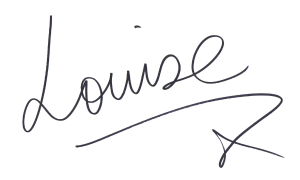Do not let your tragedy define you.
Sometimes life is hard. Truly crappy stuff can happen to some truly lovely people. Being a good person unfortunately is no defense against the slings and arrows of outrageous fortune. If there is one thing I have learned, it’s that everyone has a story; everyone has been through tough and unexpected stuff. Loss of various sorts is as certain in life as taxes.
Given then that loss in life is so certain for us all, why I wonder as we as a human race so bad at handling it? It’s a fact, we are going to lose stuff, important and sometimes irreplaceable things, so shouldn’t we get better at it? It’s an inevitable part of this beautiful thing we call life.
It is common for our tragedies to come to define us if we let them. That our wounds can turn us into someone we are not if we are not vigilant and do not process our grief in a conscious way. This becomes a second tragedy in it’s own right as it robs us of joy in life after the original tragedy occurred. Sometimes for many years after.
My client John had suffered a serious heart attack 3 years ago. A senior corporate Accountant based in Melbourne he had had a very close brush with death. Quite obviously this rocked his and his families world in a significant way. However being youngish and fitish he recovered well and a year or so after the quadruple bypass he was signed off by his consultant to a routine annual check-up. Recovered well that is physically. Mentally and emotionally John couldn’t seem to let go of the tragedy. He constantly worried he was about to drop dead at any minute. Every big family occasion would be coloured with thoughts of “this might be my final birthday celebration with them”, every holiday with the idea it might be the last. This injected a relentless air of misery to the most innocuous happening, sucking the joy out of the moment. He kept it hidden but it was there, following him like a shadow. He had started to become defined by his wounds. By the loss of his trust in his health.
Here’s the thing. There are some losses we can never replace. The loss of a loved one. The loss of our health. The loss of our fertility. The break up of a marriage. There are some things that just cannot be regained. And there are some losses which can. The car can be replaced. The house can be fixed. So, in a time of loss, replace what you can, and fix what you can. It might not be an exact substitute for the original but try and replace the feeling you had from the original. If a knee injury means you can no longer run marathons then don’t stop exercising all together find another physical activity that gives you as similar a buzz as possible. Hire a trainer. Find a pool. Try cycling. Try boxing. The key is to stop defining yourself as a marathon runner who can no longer run. It’s to define yourself as someone who loves to move, loves to exercise, who enjoys their new found sport of sparring.
If it is irreplaceable, and some losses just are, then after an appropriate time of grief, choose to stop the struggle. Stop wresting with it or you will forever define yourself by what you have lost rather than what you still have. It makes the present unbearable as our loss becomes a lens through which we view the world. Every child we pass on the street is a reminder we cannot have our own, every person we pass jogging is a reminder that that is something we can no longer do.
It’s a miserable way to live.
Viewing life through the lens of loss means we are experiencing life either in terms of what we have lost (which is past) or what we can no longer have (which is future). It means we are not experiencing life in the present moment. The present moment is where joy lives. The lens of loss cuts us off from experiencing real joy as it did for John post heart attack.
How to put down the lens of loss? It’s not easy. Of course it is not. But you owe it to yourself to do it. To close the chapter on what has been lost. Does that mean you will forget? No, or course not. But it means that you can honour and remember without colouring your present.
When experiencing loss:
- Replace what you can. Remember if it’s not a direct substitute that’s okay, try and replace the feeling state if you can’t do a direct replacement.
- Remember experiencing loss is an inevitable part of the human experience. It’s sad. It’s crap. It hurts, but it is inevitable. It will happen to us all.
- If you can’t replace what you have lost then grieve my friend, grieve and honour your loss. Take your time, make space, and hunker down to grieve. Grief is not meant to be stifled; it is meant to move through you. It’s the clever mechanism our body has to allow us to heal. Don’t deny your pain. Feel it and grieve and honour your loss in whatever way you need to.
- Choose a time to draw a line under that grief. You will know when it’s time. To close the chapter on it. It will always s be a part of your story, but it’s time to move into a new chapter or you will be forever defined by your loss. It’s really helpful to do this in a symbolic way. To write about your grief and burn it in a small ceremony. To throw some fresh flowers in the water in your favourite deserted bit of ocean and say a prayer or poem. To plant a new tree in the garden. Whatever feels symbolically releasing for you. Release it energetically into the universe.
- Let it go. Let it wash away. What you have lost will always be a part of you, but do not let it define you. Do not let your present be defined by what you have lost. Focus hard on what you have.
- Be present. Be present. Be present. Keep your thoughts on what you are experiencing in the here and now. The laughter of your children at the beach, the feel of your body as it moves through the water, the quiet companionship of a good friend.
The people we read about who seem indomitable, who have overcome unbelievable odds to be come para-olympians after horrific injury, or someone like Oprah who was systematically abused as a child but has gone on to make an incredible success of her life. They seem different from us. Extraordinary beings. Which in many, many ways they are. But at the root of that greatness has been the ability to suffer great loss without letting it define their future. They have made a conscious choice to grieve their loss, but then to cleanly move forward past their loss to create a new definition of themselves. Do not let your wounds turn you into a person you are not.





